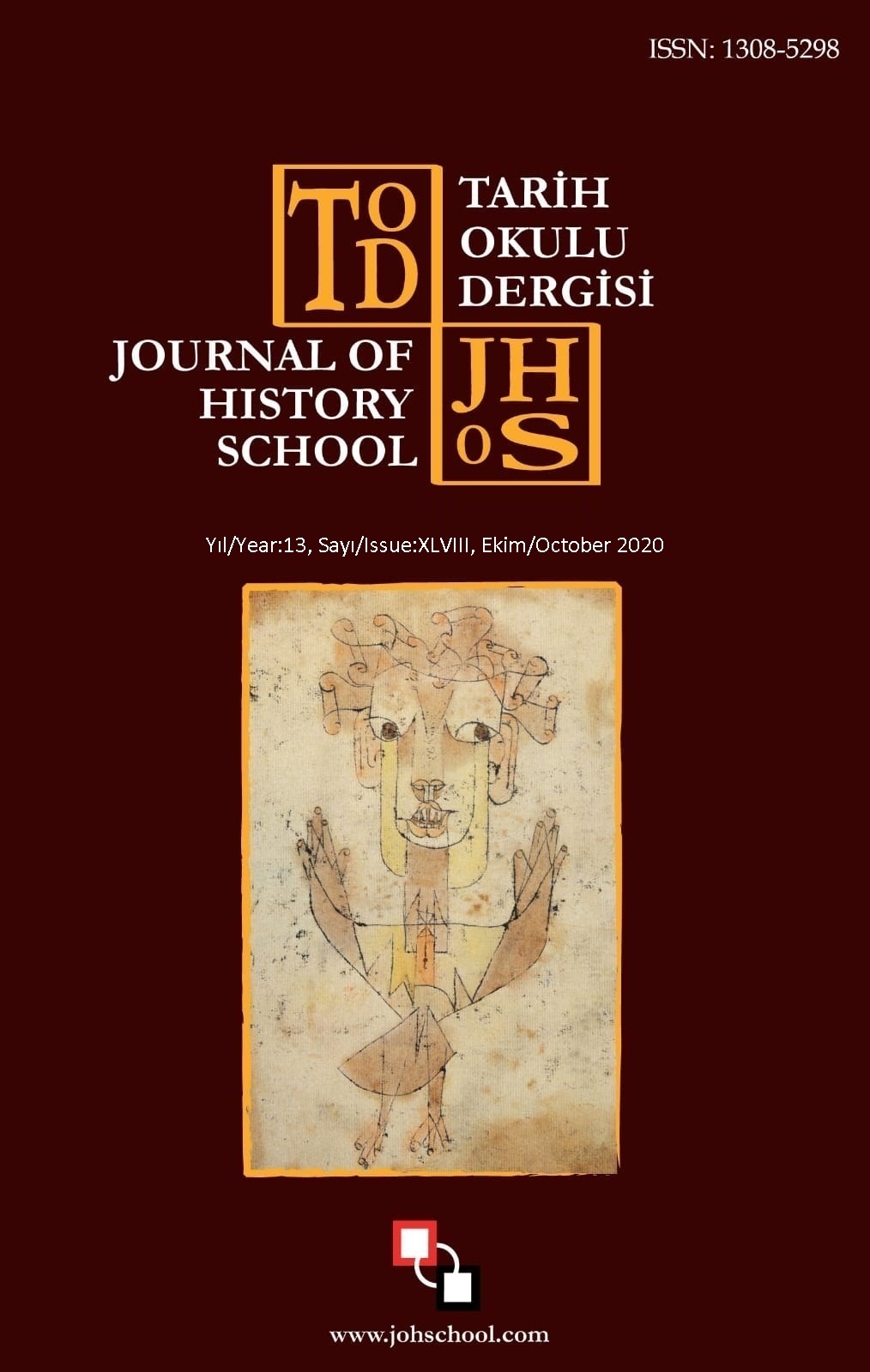Author :
Abstract
İnsanın tabiatına bağlanışı bir anlamda kendi varlık koşuluna bağlanışı anlamına gelir. Çünkü tabiat, doğanın kurucu elementidir ve hayatın kozmos düzeyinde tanzimine işaret eder. Bireyin doğadan kopması; kendi tabiatından ve varoluş koşullarından kopması, doğallığını yitirmesi, yapaylaşması ve metalaşması demektir. Bireyin kendi öz varoluş koşulu olan tabiat ise yaşanmışlığı ve dolayısıyla tarihselliği yani hafızayı sembolize eder. Cengiz Aytmatov’un Toprak Ana romanı, insanın tabiatına yönelmesini, orada kendini bulmasını ve toprakla birlikte sürekliliğini sağlamasını anlatan önemli bir romandır. Türk-İslâm geleneğinde de doğanın kurucu unsuru olan toprak, bazı geleneksel metinlerde anne imgelemiyle ifade edilir. Toprak, üzerinde yaşanılan kara parçası olması hasebiyle insanın koruyucu vasfı genel anlamda toplumun yuvasıdır. Bireyin annesiyle birlikte hüviyetini kazanması, toplumun toprağıyla kimliğini kazanması anlamına gelir. Topraksız toplum kimliğini kaybetmeye ve tarih sahnesinden silinmeye mahkûmdur. Toprak, insana hüviyetini veren bir kök vazifesi görür. Bu bağlamda Aytmatov bir milletin kökleriyle ayakta kalabileceğini bilen bir şahsiyettir. Dolayısıyla Aytmatov’un amacı, Türk insanını toprağına/tabiatına yönelterek kendini bulmasını ve hafızasını diri tutmasını sağlamak olur.
Keywords
Abstract
In a sense, man’s attachment to his nature means his attachment to his condition of existence. Because nature is the constitutive element of nature and points to the order of life at the cosmos level. Individual’s detachment from nature; It means breaking away from its nature and conditions of existence, losing its naturalness, becoming artificial and commoditized. Nature, which is the individual's own condition of existence, symbolizes the experience and thus historicity, that is, memory. Cengiz Aytmatov’s novel Mother Earth is an important novel that tells about man’s orientation to his nature, finding himself there and ensuring its continuity with the soil. The soil, which is the founding element of nature in the Turkish-Islamic tradition, is expressed in some traditional texts with the image of the mother. As the land is the land on which we live, the protective qualities of human beings are generally the home of society. The individual gaining identity with his mother means gaining his identity with the land of the society. The landless society is doomed to lose its identity and disappear from the stage of history. Soil acts as a root that gives man his identity. In this context, Aytmatov is a person who knows that a nation can survive with its roots. Therefore, Aytmatov’s aim is to direct the Turkish people to their land / nature to find themselves and keep their memory alive.





